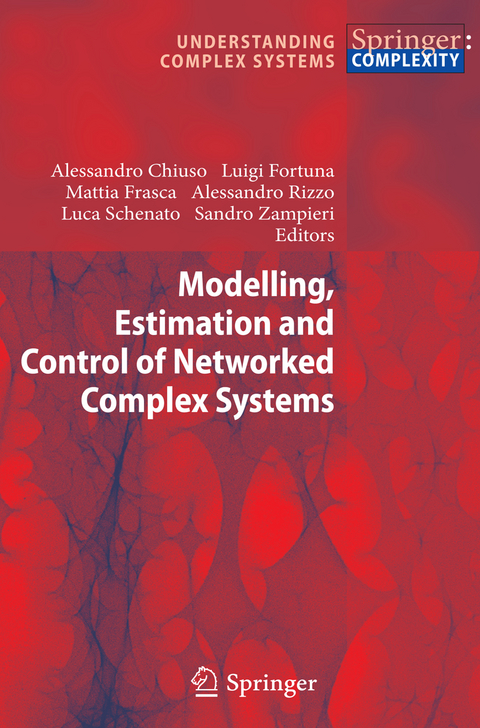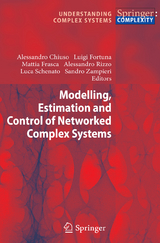Modelling, Estimation and Control of Networked Complex Systems
Springer Berlin (Verlag)
978-3-642-03198-4 (ISBN)
Collective Phenomena.- Synchronization in Networks of Mobile Agents.- Decentralized Adaptive Control for Synchronization and Consensus of Complex Networks.- Dealing with Uncertainty in Consensus Protocols.- Formation Control over Delayed Communication Network.- Social Phenomena.- Remarks on Epidemic Spreading in Scale-Free Networks.- Complex Networks and Critical Infrastructures.- Sensor Networks.- Distributed Maximum Likelihood Estimation over Unreliable Sensor Networks.- Optimal Sensor Scheduling for Remote Estimation over Wireless Sensor Networks.- Growing Fully Distributed Robust Topologies in a Sensor Network.- System Science.- Topological Properties in Identification and Modeling Techniques.- Network Abstract Linear Programming with Application to Cooperative Target Localization.- On the Effect of Packet Acknowledgment on the Stability and Performance of Networked Control Systems.- State Estimation in a Sensor Network under Bandwidth Constraints.- Admission Control in Variable Capacity Communication Networks.
From the reviews:
"This collection of papers presents recent research on theory and applications related to systems engineering, information processing, and control over complex networks. Relevant readers include researchers, practicing engineers, and graduate students interested in nonlinear dynamics, complexity, and networked systems." (IEEE Control Systems Magazine, Vol. 30, June, 2010)
| Erscheint lt. Verlag | 2.9.2009 |
|---|---|
| Reihe/Serie | Understanding Complex Systems |
| Zusatzinfo | XVI, 238 p. |
| Verlagsort | Berlin |
| Sprache | englisch |
| Maße | 155 x 235 mm |
| Gewicht | 518 g |
| Themenwelt | Technik ► Maschinenbau |
| Schlagworte | Communication • Complexity • complex networks • Complex Systems • Dynamical Systems • Dynamisches System • Dynamische Systeme • Information • Komplexe Systeme • linear optimization • Model • Modeling • Networked Complex Systems • Netzwerke • Nichtlineares System • Nichtlineare Systeme • Nonlinear Dynamics • programming • stability • Topologie • wireless sensor networks |
| ISBN-10 | 3-642-03198-6 / 3642031986 |
| ISBN-13 | 978-3-642-03198-4 / 9783642031984 |
| Zustand | Neuware |
| Haben Sie eine Frage zum Produkt? |
aus dem Bereich




